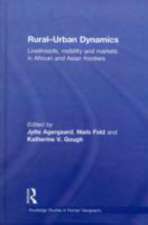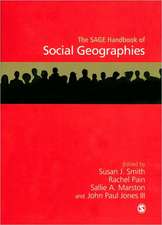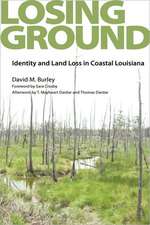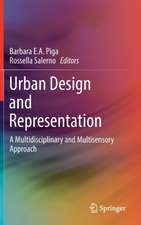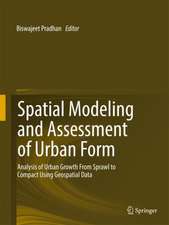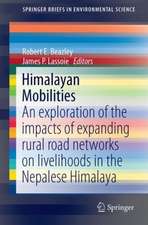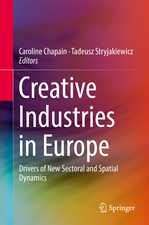Knowledge and Institutions: Knowledge and Space, cartea 13
Editat de Johannes Glückler, Roy Suddaby, Regina Lenzen Limba Engleză Hardback – 22 iun 2018
| Toate formatele și edițiile | Preț | Express |
|---|---|---|
| Paperback (1) | 371.03 lei 38-45 zile | |
| Springer International Publishing – 8 ian 2019 | 371.03 lei 38-45 zile | |
| Hardback (1) | 431.94 lei 3-5 săpt. | |
| Springer International Publishing – 22 iun 2018 | 431.94 lei 3-5 săpt. |
Din seria Knowledge and Space
-
 Preț: 401.57 lei
Preț: 401.57 lei -
 Preț: 281.52 lei
Preț: 281.52 lei -
 Preț: 181.58 lei
Preț: 181.58 lei -
 Preț: 293.36 lei
Preț: 293.36 lei -
 Preț: 295.37 lei
Preț: 295.37 lei -
 Preț: 402.38 lei
Preț: 402.38 lei - 18%
 Preț: 1383.49 lei
Preț: 1383.49 lei -
 Preț: 394.44 lei
Preț: 394.44 lei -
 Preț: 431.73 lei
Preț: 431.73 lei -
 Preț: 376.24 lei
Preț: 376.24 lei -
 Preț: 396.53 lei
Preț: 396.53 lei - 18%
 Preț: 1114.52 lei
Preț: 1114.52 lei - 18%
 Preț: 943.88 lei
Preț: 943.88 lei - 18%
 Preț: 949.10 lei
Preț: 949.10 lei - 18%
 Preț: 950.66 lei
Preț: 950.66 lei - 15%
 Preț: 644.95 lei
Preț: 644.95 lei - 15%
 Preț: 649.87 lei
Preț: 649.87 lei -
 Preț: 429.61 lei
Preț: 429.61 lei -
 Preț: 92.91 lei
Preț: 92.91 lei
Preț: 431.94 lei
Nou
Puncte Express: 648
Preț estimativ în valută:
82.65€ • 86.29$ • 68.40£
82.65€ • 86.29$ • 68.40£
Carte disponibilă
Livrare economică 14-28 martie
Preluare comenzi: 021 569.72.76
Specificații
ISBN-13: 9783319753270
ISBN-10: 3319753274
Pagini: 230
Ilustrații: X, 310 p. 27 illus., 14 illus. in color.
Dimensiuni: 155 x 235 mm
Greutate: 0.67 kg
Ediția:1st ed. 2018
Editura: Springer International Publishing
Colecția Springer
Seria Knowledge and Space
Locul publicării:Cham, Switzerland
ISBN-10: 3319753274
Pagini: 230
Ilustrații: X, 310 p. 27 illus., 14 illus. in color.
Dimensiuni: 155 x 235 mm
Greutate: 0.67 kg
Ediția:1st ed. 2018
Editura: Springer International Publishing
Colecția Springer
Seria Knowledge and Space
Locul publicării:Cham, Switzerland
Cuprins
Chapter 1. Knowledge, Geography and Institutions: An Introduction (Johannes Glückler, Roy Suddaby, Regina Lenz ).- Part I: Institutions, Knowledge and Innovation.- Chapter 2. Regional Innovation Transitions (Michael Storper).- chapter 3. Globalization and Institutional Change in Italian Industrial Districts (Harald Bathelt, Nicolas Conserva).- chapter 4. Innovation under a Protected Label of Origin: Institutional Change in Cognac (Jerker Moodysson, Lionel Sack).- Chapter 5. Conventions, Institutions and Knowledge - Perspectives on Institutions and Knowledge from the Standpoint of the “Economics of Convention” (Rainer Diaz-Bone).- Part II: Institutional Emergence, Change and Maintenance.- Chapter 6. Gastronomic Societies in the Basque Country (Andreas Hess).- Chapter 7. Continuity or Change? Drift and Morphosis in Shifting Institutional Contexts (Johannes Glückler, Regina Lenz).- Chapter 8. The Shared Challenges of Institutional Theories: Rational Choice, Historical Institutionalism andSociological Institutionalism (Henry Farrell).- Chapter 9. Organizational Fields as Mnemonic Communities (Diego Coraiola, Roy Suddaby, William M. Foster).- Part III: A Spatial Perspective on Institutions.- Chapter 10. Know Thy Place: Location and Imagined Communities in Institutional Field Dynamics (Tammar B. Zilber).- Chapter 11. The Art of Reconstructing a Shared Responsibility: Institutional Work of a Transnational Commons (Tiina Ritvala).- Chapter 12. Institutions and the Thirst for ‘Prestige’ Transport Infrastructure (Andrés Rodríguez-Pose, Riccardo Crescenzi, Mario Di Cataldo).- Chapter 13. Studying Entrepreneurship as an Institution (Pamela S. Tolbert, Ryan Coles).
Notă biografică
Johannes Glückler is Professor of Economic and Social Geography and Fellow of the Marsilius Center for Advanced Studies at Heidelberg University. His research follows a relational perspective and builds on theories of organization, networks and institutions in the analysis of knowledge and the space economy. He serves on several editorial boards of journals in the field of economic geography and as a partner of the Schader Foundation in the area of social network research. He is also co-founder of the M.Sc. Governance of Risks and Resources at the Heidelberg Center for Latin America in Santiago de Chile.
Roy Suddaby is the Winspear Chair of Business at the Peter B. Gustavson School of Business, University of Victoria, Canada and Research Professor at the Newcastle University Business School, U.K. Professor Suddaby is an internationally regarded scholar of organizational theory and institutional change. His work has contributed to our understanding of the critical role of symbolic resources – legitimacy, authenticity, identity and history – in improving an organization’s competitive position. His current research examines the changing social and symbolic role of the modern corporation.
Regina Lenz is a research associate at the Chair of Economic and Social Geography at Heidelberg University. She studied geography, history, English literature and philology, and economics at Heidelberg University and wrote her diploma thesis on the effectiveness of a development approach in Bangladesh’s leather sector. Furthermore, she has worked for a local business development agency and has done internships in development cooperation and international site selection. Her research focuses on the mechanisms of social institutions, as well as their effects on human interaction and public policy-making.
Regina Lenz is a research associate at the Chair of Economic and Social Geography at Heidelberg University. She studied geography, history, English literature and philology, and economics at Heidelberg University and wrote her diploma thesis on the effectiveness of a development approach in Bangladesh’s leather sector. Furthermore, she has worked for a local business development agency and has done internships in development cooperation and international site selection. Her research focuses on the mechanisms of social institutions, as well as their effects on human interaction and public policy-making.
Textul de pe ultima copertă
This open access book bridges the disciplinary boundaries within the social sciences to explore the role of social institutions in shaping geographical contexts, and in creating new knowledge. It includes theorizations as well as original empirical case studies on the emergence, maintenance and change of institutions as well as on their constraining and enabling effects on innovation, entrepreneurship, art and cultural heritage, often at regional scales across Europe and North America. Rooted in the disciplines of management and organization studies, sociology, geography, political science, and economics the contributors all take comprehensive approaches to carve out the specific contextuality of institutions as well as their impact on societal outcomes. Not only does this book offer detailed insights into current debates in institutional theory, it also provides background for scholars, students, and professionals at the intersection between regional development, policy-making, and regulation.
Caracteristici
The only open access book dealing with the intersection of institutions, space and knowledge A truly multidisciplinary book on institutions, bringing together a group of leading experts in institutional theory from various fields in social science Presents novel theoretical and empirical insight in the geography of knowledge and in the processes of learning

